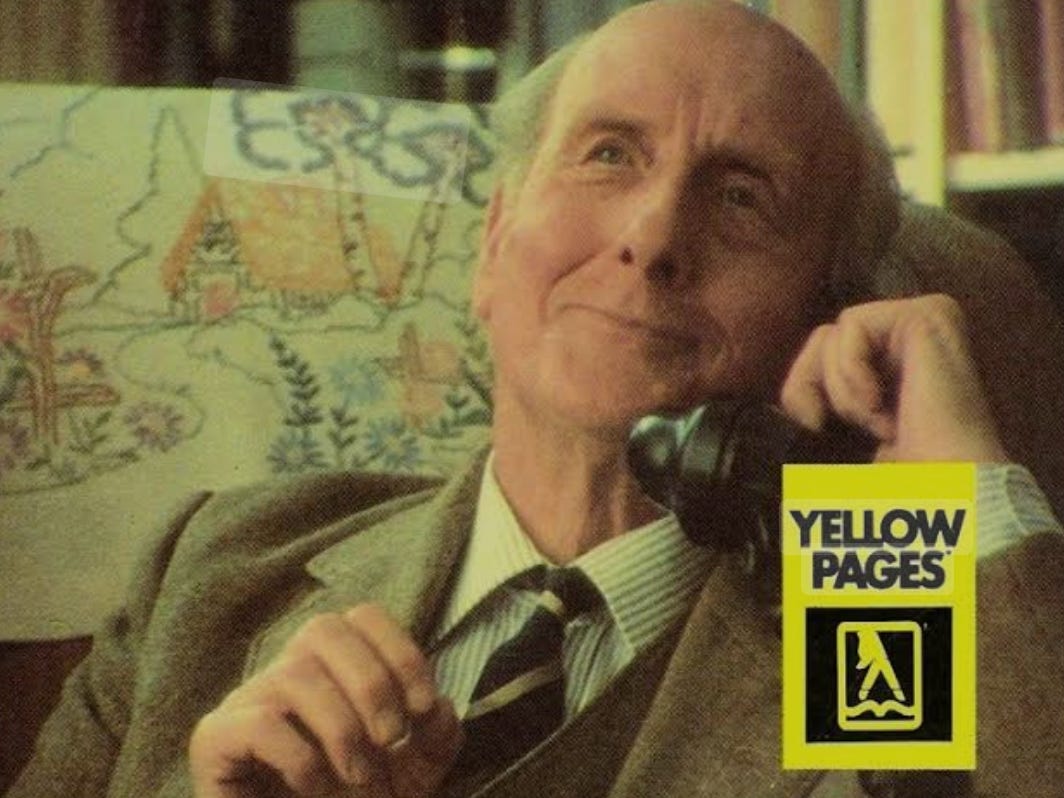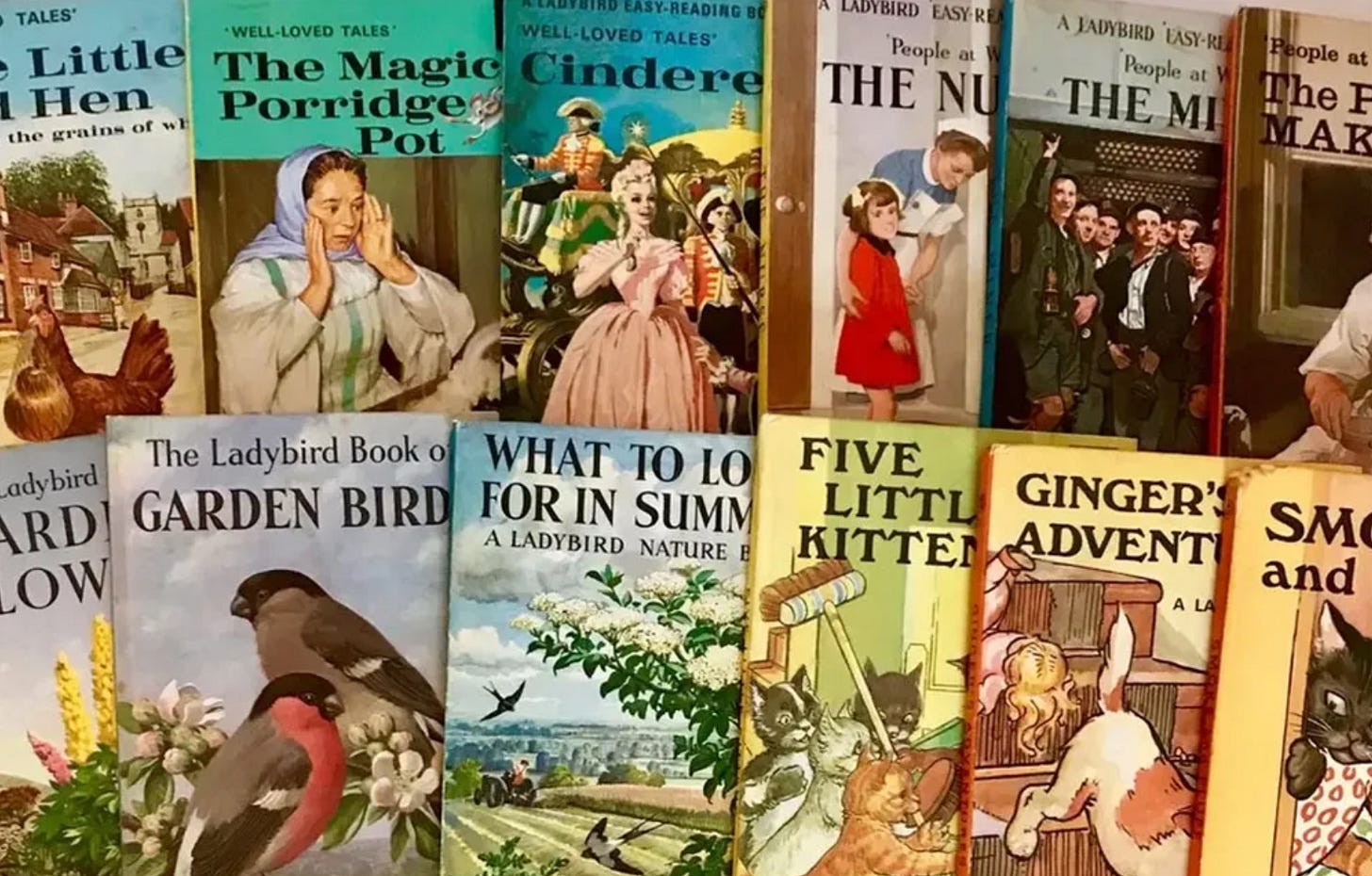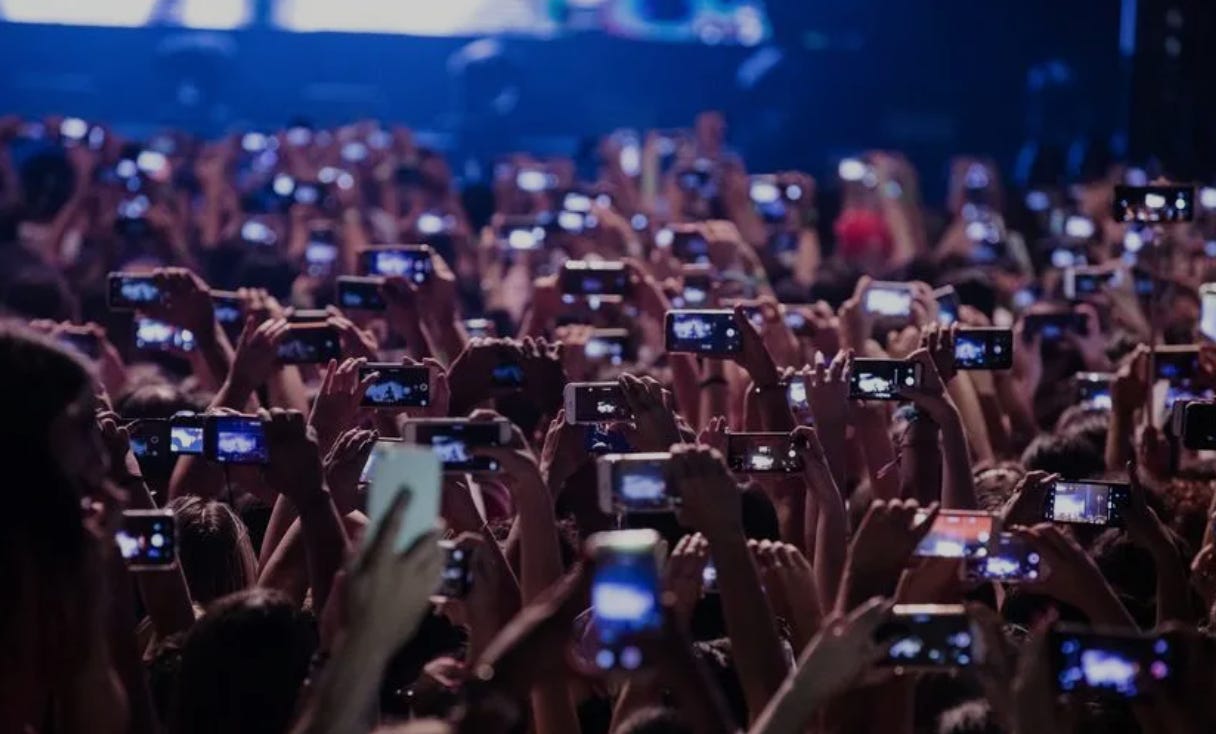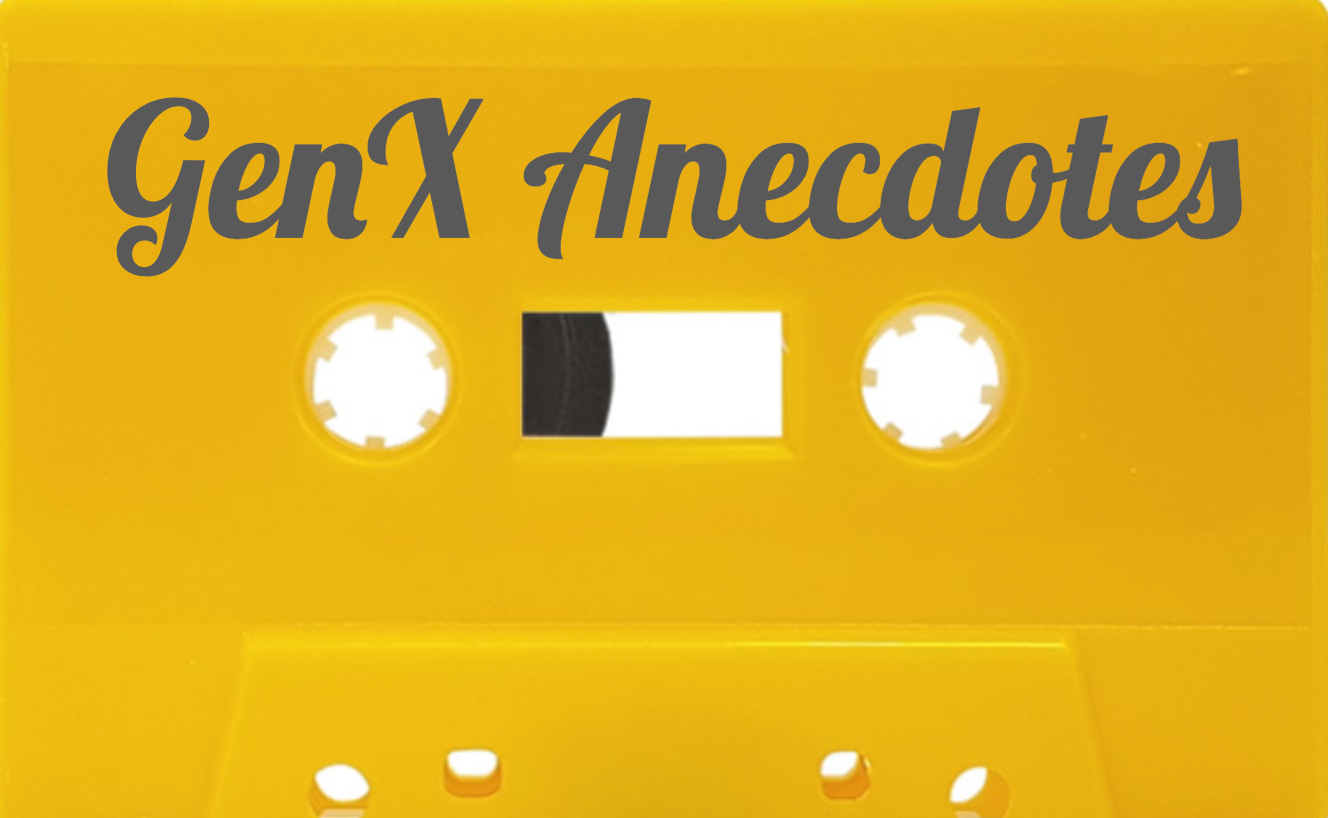One of the things that happens as you get older, is time starts to feel like it’s moving faster. I know this because I’m barely down the ladder after packing away the Christmas decorations in the attic, when up I go again to bring them all back down as I mumble to myself “there is absolutely no bloody way that was a year ago”.
To me, the 1990s still feels like it’s only about ten years ago. I have to keep recalibrating my perception of time to adjust to the fact that 1995 was actually 30 years ago. Somewhere between the mid 2000s and 2010s is when it all gets a bit fuzzy and I start to lose track. I may have somehow mislaid the odd decade or so, but on the bright side, I’ve now stopped losing my front door keys, so the way I see it is, that’s a practical tradeoff. My subconsciousness is obviously just having a declutter and being economical with the space that’s left in there.
Some of you spirited younger people (who don’t lose track of decades) like to mock us older folk for “living in the past” or “hanging onto things that have gone”. Fair enough. I get it. I did the same when I was younger. But given the fact you’re doing it, I did it, and my parents probably did it too, what are the chances that before you know it, the next lot will be mocking you mercilessly too for being nostalgic?
Some things never change. I’m just giving you a heads up.
However, some things really do change and you can only fully appreciate this fact if you have witnessed the passage of time by seeing the changes happen around you with your own eyes.
In my lifetime, one of the most obvious and noticeable changes to our day-to-day lives has been technological. I can wax lyrical all day about how clearly I remember not having a mobile phone, (because they didn’t exist yet) or only having three channels on the telly, no internet, no texts, no “contactless” debit cards (cash only), no central heating, no seat belts in cars, how everyone was smoking cigarettes everywhere.. all the time, and the fact that I learned how to touch-type on a “typewriter”.
For people of my age or older all this is pretty obvious stuff, but to people much younger, I imagine this probably all seems a bit otherworldly. And it was otherworldly. As the saying goes “The past is a foreign country, they do things differently there”.
When I recall conversations I had with my husband’s late grandmother, I remember her telling me that when she was a young child, some people were still getting around in horse-drawn carriages and there were very few cars on the road yet. To me, that’s really otherworldly. Yet, she was still alive when the iPhone dropped. This rate of change is astonishing! If it’s bewildering for me, imagine how it must feel for people twenty years my senior.
For clarity, my childhood took place in the 1970s and my teens took place in the 1980s. For people around my age, our childhood memorabilia comprises of faded and blurry Polaroid photos of us in brown and mustard, patterned living rooms. (Everything was brown and mustard). Wearing tartan flared trousers and hand knitted jumpers, that we were told “are not itchy at all, so stop moaning”. We also have diaries, letters, old greeting cards or postcards to remind us. Not all of us would have had actual home movies of ourselves as kids. If we did they would be silent and grainy. They might only have survived if someone had the foresight to get them transferred over to a digital format before they were lost forever.
Of course, the role of music can’t be underestimated as an incredibly potent and evocative vehicle to transport us right back to a particular place in our past. Itchy tartan trousers and brown & mustard wallpaper? Cue Glam Rock soundtrack. I can track and recall the sequence of events in my life through my childhood, teens and twenties, pretty accurately, purely based on what music I happened to be listening to at any given time. See my previous piece: “The Magical Lost Art of the Mixtape”.
But it’s not just that our perception of time speeds up in an orderly and predictable fashion. Nope. It’s random and arbitrary. Time is trolling us.
Riddle me this….. It’s 1975, and I am a wee nipper watching an old black and white film on the telly called “Tit for Tat” by Laurel & Hardy (1935). In terms of time, this is the equivalent of a kid today watching “The Goonies” (1985).
Surely, I’m not enduring this flagrant lunacy alone here?
This summer marked the 40th anniversary of Live Aid (1985). 40 years prior to that was the year the Second World War ended (1945). As a teen I clearly remember watching Live Aid from my London home as it aired live. It was a big deal. Obviously, not remotely as big of a deal as the end of WWII. (Sorry Bob). But did I perceive the distance of time between myself and Vera Lynn the same way teens now perceive the distance of time between themselves and Freddie Mercury performing at Live Aid?
After all, 40 years is 40 years. Right? The thick plottens...
Time plays tricks on us and the fact that the pace of change seems to be accelerating at a dizzying rate, just makes the whole experience even more surreal. Nostalgia plays a far bigger role in our lives because memories of past events become more distant and we have way more of them. We know we can’t climb inside that old faded photograph and go back there. Even if sometimes, we might want to. So the past becomes an enchanting, almost magical place.
One of my earliest childhood memories was owning these second hand Ladybird books that were bought from a jumble sale. They had a comforting old smell to them and as I would lose myself in the stories and vintage illustrations, I remember imagining a child from the past in an old creaking house, with a grandfather clock chiming serenely in the background staring at the very same page I was looking at. I remember it feeling a bit spooky, but I liked that feeling. It was cosy.
The things that evoked the past for us were mainly objects that we could touch, smell and hold in our hands. They had a kind of gentle and quiet secret life of their own. We were fine with all this. We didn’t need much more. Our imaginations would fill in the gaps.
When I think about the access we all have now to being able to make endless high quality movies and take pictures on our phones anytime, it strikes me that our whole perception of memories, is rapidly changing. Nostalgia and the passage of time, is being altered. It’s no longer dreamy and dusty. It’s in high definition. It’s no longer faded and mysterious. It’s almost as clear and vivid as reality itself. When I show my teen daughter videos of when she was a baby, they could have been made yesterday.
I often think about that meme that was doing the rounds of how maths teachers years ago would say “you won’t always have a calculator on you”. In other words, learn mental arithmetic, because you’ll need it in the real world. It’s amusing, because obviously the teacher had no idea what was coming. Nobody did. We didn’t know what we didn’t know yet. But in my opinion, it’s not quite the “gotcha” everyone thinks it is. Apply this to “I don’t need to learn to read maps because I have Google maps now. Or, “I don’t need to learn to write with a pen, because I can just take a screenshot or type a quick note in my phone”. Is the joke on the teacher or on us?
There are so many things we don’t need to think about or remember anymore because everything is just a quick swipe and a tap away. Whole parts of our brains are not being used anymore. Maybe having all this tech is freeing us up to do other things? But what other things though?
Seeing rows and rows of people holding up smartphones at music concerts demonstrates that people are even willing to sacrifice the experience of actually losing themselves in the moment, just so they can capture it on their smartphones. I just want to make sure I’m getting this right here. They are recording something that they are missing out on because they are too busy recording it? It’s an absurdist onion. So many layers.
Do we not trust our own minds to be able to hold onto memories anymore, so we digitally outsource our phones to remember everything for us? If it isn’t available for us to see on a screen, does that mean it’s not as real to us anymore?
I don’t want my memories to be in high definition, digitally enhanced, face-tuned and stored in a folder on a hard drive. In the same way I don’t want old songs I love to be quantised, auto-tuned and performed by a twerking porn star with inflatable rubber lips. I don’t want beloved classic movies from my childhood “re-imagined” through a modern lens with steaming piles of CGI smeared all over them. It’s vandalism. Why are the 2020s so crassly and brutally overbearing? Leave the past alone. Let it rest in peace and give it some space to breath for goodness sake. Time might be trolling us, but there’s no need to pour petrol over it and force us all to watch it go up in flames.
Believe it or not, I am not actually a complete luddite. I do think that some technological advances have been remarkable. Like everyone, I use technology all the time and some of it is obviously very useful to me in ways that, no doubt, I take for granted. After all, I am not writing this piece using a feather quill and getting my carrier pigeons ready to fly this over to you. (Although that would be kind of cool).
I just wonder, what with all the excitement of these shiny new things and our compulsion to digitally capture and enhance everything, we are actually forgetting some of the subtler aspects of life that are quietly vanishing away. Further down the line, will we discover that those little things turn out to be rather important ingredients to what it means to be a human being?
We don’t know what we don’t know yet.
My writing is fuelled with caffeine, so if you would like to support my work but don’t want to become a paid subscriber, why not click below to buy me a coffee? Cheers! x










I may start writing with a plume and ink as an outright act of rebellion. Wonderful writing, especially the rubber lips line. It is all vandalism.
Brilliant. Very much resonates with me.
I do think there’s something to your proposal that the 40 year gap between 1945 and 1985 is somehow qualitatively different from the 40 year gap between 1985 and today, and that this has to do with the much higher fidelity of recordings from 40 years ago than from 40 years prior to that. Although it may also just be the fact that the gap between now and something we actually lived through is inherently going to feel different from the gap between something we were living through and something that happened before we were born.
But the availability of media does flatten time differences I think. A younger friend once told me she didn’t seem to have the same connection to music of a particular era (unlike my steadfast devotion to the music of the ‘80s) because unlike us GenXers who were stuck with whatever was on broadcast radio (and then our mixtapes), she had access to music of every era at her fingertips through iTunes or Pandora or Spotify or whatever.